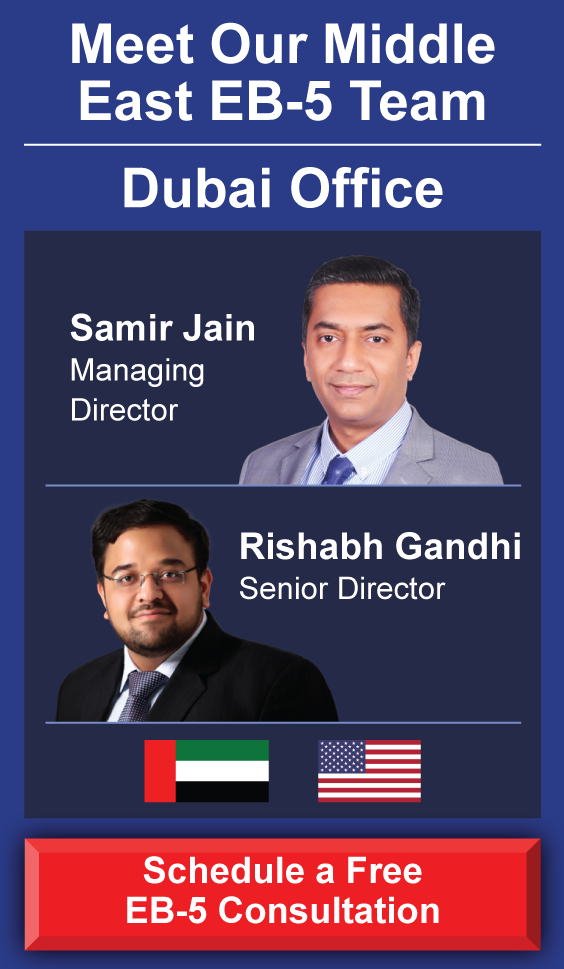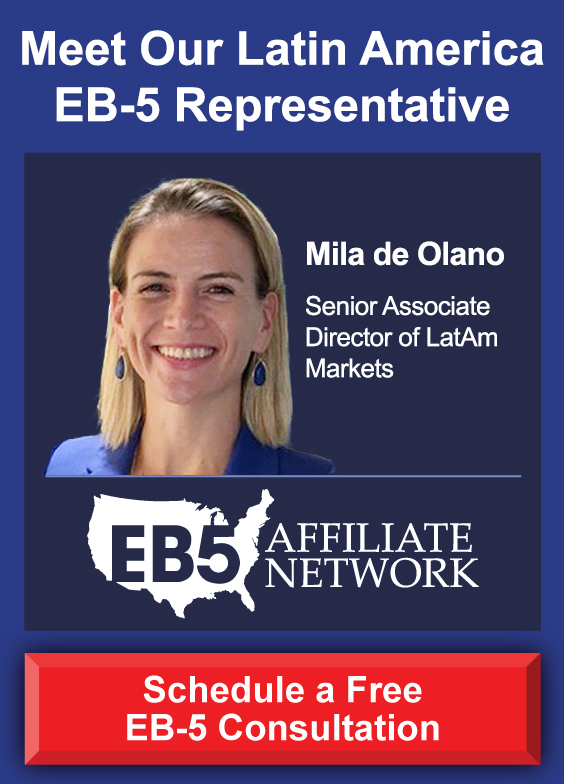Which visa category is best for foreign nationals and their families to immigrate to the United States?
Types of U.S. Immigrant Visas
United States Citizenship and Immigration Services (USCIS)– a division of the Department of Homeland Security– issues several US immigrant visa types to foreign nationals who desire permanent resident status in the United States. The process and requirements are different for each.
Immigrants granted lawful permanent resident status are issued Green Cards, allowing them to live, work, and study in the United States forever, unlike with a nonimmigrant visa.
There are four main immigrant visa categories:
- Immediate relative visas
- Family preference visas
- Diversity visas
- Employment-based visas
In the following article, we will provide information on each of the U.S. visas in these four visa categories to help foreign nationals decide which option is best for themselves and their families.
Immediate Relative Immigrant Visas
Family Preference Immigrant Visas
Diversity Immigrant Visas
Employment-Based Immigrant Visas
Frequently Asked Questions
Immediate Relative Immigrant Visas

Foreign nationals with immediate relatives who are U.S. citizens can apply for immediate relative immigrant visas. Unlike other immigrant visas, the number of immediate relative visas issued each year is unlimited.
An immediate family member is defined as a spouse, unmarried child under age 21, or parent. The following visa types are for immediate relatives of U.S. citizens:
- IR-1: Spouse of U.S. citizen
- IR-2: Unmarried child of U.S. citizen
- IR-3: Orphan adopted abroad by U.S. citizen
- IR-4: Orphan to be adopted in the United States by U.S. citizen
- IR-5: Parent of U.S. citizen
How to Apply for Immediate Relative Immigrant Visas
The immediate relative who is a U.S. citizen (the petitioner) must file Form I-130, Petition for Alien Relative, with USCIS on behalf of a foreign relative (the beneficiary).
Beneficiaries living in the U.S. under a different legal status must file Form I-485, Application to Register Permanent Residence or Adjust Status. Once the application is reviewed, the applicant may be required to appear for biometrics collection and/or an interview.
Beneficiaries living outside the U.S. must file for an immigrant visa through the consulate in their home country.
Upon approval of Form I-130, USCIS forwards the petition to the National Visa Center, which will review the documentation and forward it to the U.S. embassy or consulate of the beneficiary’s home country. The embassy or consulate will set an interview date.
Upon successfully interviewing and passing a medical exam, the beneficiary will receive his or her immigrant visa.
Family Preference Immigrant Visas

Distant relatives of U.S. citizens and certain relatives of lawful permanent residents may be able to apply for family preference visas.
The relationship between the U.S. citizen or lawful permanent resident and the relative determines the family preference category.
This visa category, followed in parentheses by the annual limit of visas issued, is divided as follows:
- F-1: Unmarried child over age 21 of U.S. citizen and their minor children (23,400)
- F-2: Spouse, minor child, and unmarried child over age 21 of lawful permanent residents (114,200)
- F-3: Married child of U.S. citizen, his or her spouse, and their minor children (23,400)
- F-4: Sibling of U.S. citizen, his or her spouse, and their minor children (65,000)
How to Apply for Family Preference Immigrant Visas
The process of applying for the family preference visa category is the same as applying for the immediate relative visa category– Form I-130 is filed with the USCIS by the petitioner, and then the beneficiary either submits Form I-485 or applies for an immigrant visa through their local U.S. embassy.
Diversity Immigrant Visas

Foreign nationals from countries with historically low rates of immigration to the United States can apply for permanent resident status through the Diversity Immigrant Visa Program.
The number of visas issued worldwide through this program is typically limited to 50,000 per year. For fiscal year 2024, the number is increased to 55,000.
Applicants are selected randomly by computer lottery, based on the number of visas available per region or country. No single country may receive more than seven percent of the available visas in a given year.
Eligibility requirements apply. Selection for the visa lottery process does not guarantee an applicant will be granted a visa.
How to Apply for Diversity Immigrant Visas
Foreign nationals must submit an electronic application for the Diversity Visa Lottery through the U.S. Department of State website.
The Diversity Visa Lottery is only open one month out of the year, typically from mid-October to mid-November.
Applicants can check the status of their lottery entry beginning in May of the following year, by returning to the Visa Lottery website and clicking “Entrant Status Check.”
Employment-Based Immigrant Visas

For qualified foreign nationals, USCIS makes available approximately 140,000 employment-based visas each year. These visas are divided into five visa categories as follows:
- EB-1: Priority workers such as award-winning artists, performers, athletes; outstanding professors and researchers; or multinational executives.
- EB-2: Professionals with advanced degrees or exceptional ability.
- EB-3: Skilled workers, professionals, and unskilled workers.
- EB-4: Certain religious workers, broadcasters, or workers employed abroad by the U.S. government.
- EB-5: Immigrant investors, who invest a minimum of $800,000 in a qualifying U.S. business that creates at least 10 jobs.
Each of these employment-based preference categories has its own set of requirements.
How to Apply for Employment-Based Visas
- EB-1: Priority workers file Form I-140, Immigrant Petition for Alien Worker. If you are a professor or executive, your U.S. employer must file on your behalf.
- EB-2: Your employer must file both ETA Form 9089 and Form I-140 on your behalf.
- EB-3: Same process as EB-2; the lawful permanent resident’s employer files on the immigrant’s behalf.
- EB-4: Your employer must file Form I-360, Petition for Amerasian, Widow(er), or Special Immigrant, on your behalf. In certain cases, immigrants file themselves.
- EB-5: Consult with an EB-5 specialist such as EB5AN and an immigration attorney to make an investment and file Form I-526 or I-526E.
- After two years of conditional lawful permanent residency, file Form I-829 to receive permanent Green Cards for an investor and their family.
Frequently Asked Questions
Which visa categories allow a relative to become a lawful permanent resident?
Immediate relative, family preference, diversity, and certain employment-based immigration visas such as EB-5 all allow an applicant’s spouse and unmarried children under the age of 21 to apply for Green Cards.
Are U.S. immigrant visas temporary?
No. Immigrant visas grant permanent residence in the United States. Nonimmigrant visas— such as the H1-B visa, visitor visas, student visas, or other nonimmigrant visas– are temporary.
Can you lose your immigration visa if you leave your job?
No. But permanent resident status can be lost if a Green Card holder moves abroad, reports themselves as a “nonimmigrant” on U.S. tax returns, or remains abroad for an extended period.
Which visa application is best for those with no ties to the U.S.?
The EB-5 Immigrant Investor Program is one of the most reliable methods of obtaining a Green Card for an investor and their eligible family members. It doesn’t require extraordinary ability, a workplace visa sponsor, or a spouse or family relation.
Do I need an immigration consultant to apply?
It depends on the visa category. Immigration consultants are strongly advised for the EB-5 visa category, in order to connect immigrants with qualifying investment projects.
However, for the Diversity Visa, the immigration services recommend applicants apply themselves, as there has been an uptick in scammers targeting this visa specifically.
It is always wise to speak to a licensed attorney specializing in immigration law before applying for any visa.
For more advice on immigrant and nonimmigrant visas alike, contact EB-5 Affiliate Network today at info@eb5an.com. EB5AN has free online and in-person seminars open to all, and our trusted professionals are always ready to offer assistance.










